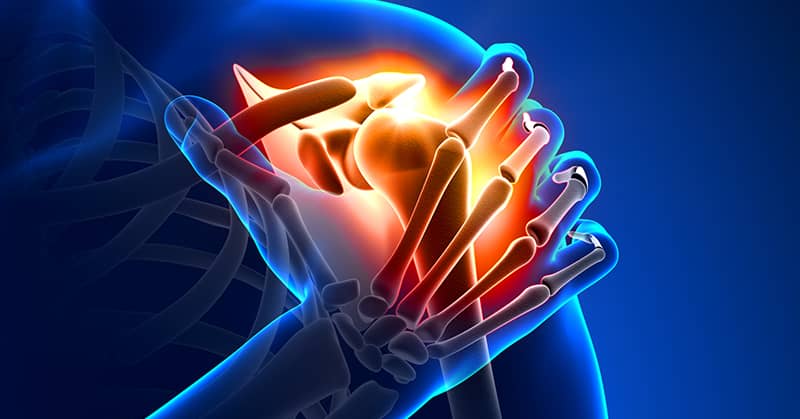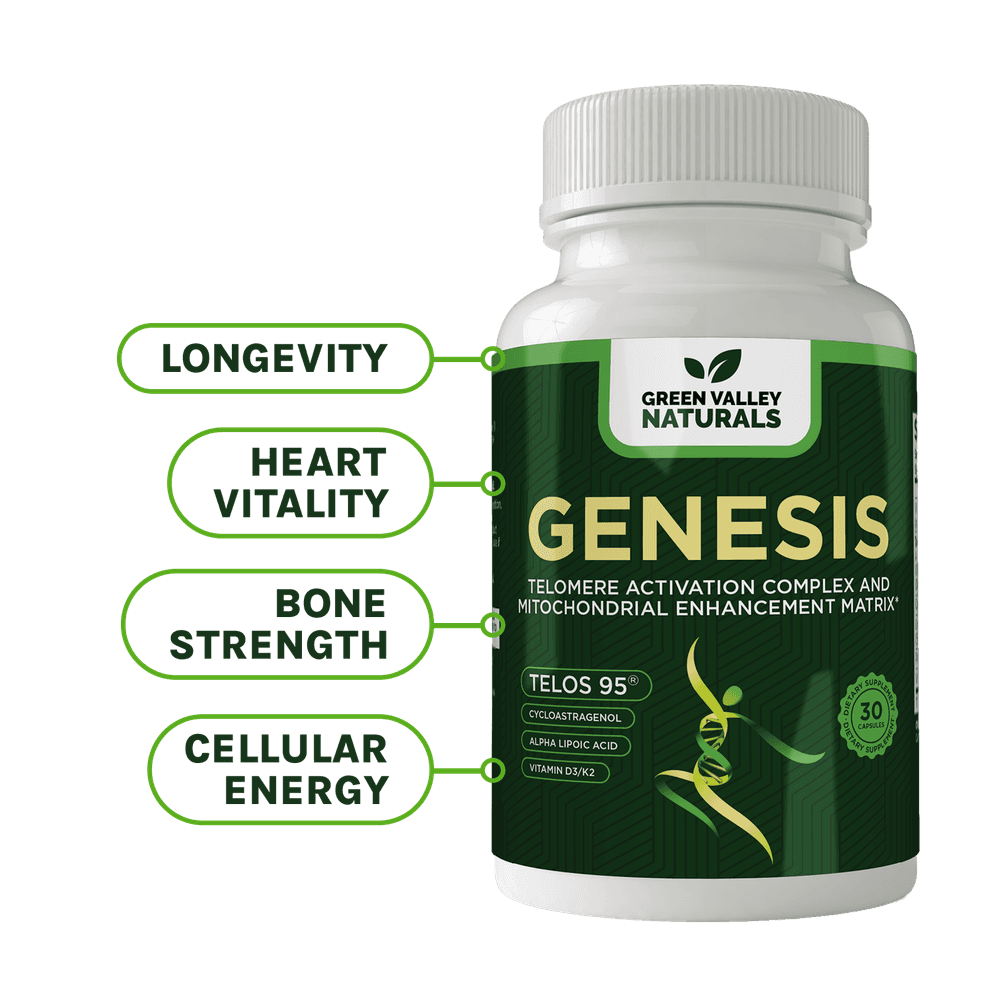
What if the root cause of many chronic diseases—from heart disease to Alzheimer’s—was silently at work inside your body right now? Chronic inflammation, a hidden yet powerful enemy, is linked to four out of ten Americans suffering from health challenges. But the good news? You have the power to fight back. From the foods you eat to the way you move and sleep, simple lifestyle changes can slash inflammation and protect your long-term health. Read on to discover how you can take control.
Key Takeaways
Foods like berries, nuts, and omega-3-rich fish can lower inflammation, while ultra-processed foods like sugary drinks and refined grains worsen it.
Regular exercise, quality sleep, and reducing stress are essential in curbing chronic inflammation.
Avoiding air pollution and staying socially engaged can help lower inflammation and improve overall health.
When Inflammation Goes Rogue
When your immune system is operating correctly, it uses inflammation
to attack invading pathogens and help heal damage to the body. However,
chronic inflammation – when an overstimulated immune system continually
causes immune cells to damage your body’s own organs – is one way this
system can go wrong.
Nowadays, chronic inflammation is going very wrong for many people.
Right now, inflammation that won’t turn off is believed to be dragging down the health of four out of ten Americans, more than 130 million of us. [1] In fact, inflammation is a leading cause of many of the diseases of aging such as Alzheimer's. Added to that, researchers estimate that five out of ten of all deaths worldwide are attributable to health conditions that are affected by long-term chronic inflammation.
What can you do? Plenty. Let’s take a look…
Traditional healers have known about inflammation, the basic immune system process, for a very long time. Thousands of years ago, an ancient Roman author named Aulus Celsus wrote about how inflammation was part of the healing process for wounds and caused warmth, swelling, redness, and pain in the damaged areas.
Inflammation linked to a variety of illnesses
It wasn’t until the 1800s that chronic inflammation was recognized as a health problem that didn’t play a part in healing. And today, we understand that chronic inflammation is a danger that can lead to a stunning number of serious illnesses. That includes heart disease, cancer, diabetes, kidney disease, non-alcoholic fatty liver disease, autoimmune disorders, and neurodegenerative diseases like Alzheimer’s and Parkinson’s.
Unfortunately, the default Western lifestyle that many of us follow today—sitting for hours with our eyes glued to a video screen and munching on highly processed food—is custom-made to encourage the build-up of fat-- especially visceral fat, which triggers the immune system and causes chronic inflammation.
Poor diet is a leading cause of inflammation
One of the main culprits is diet. The foods we eat can be so problematic that researchers have now created a Diet Inflammatory Index, which measures the power of your foods to either increase your chances of chronic inflammation or protect against it. [2]
To lower inflammation, you should eat fruits, vegetables, nuts, fatty fish, green tea, dark chocolate, extra virgin olive oil, and spices like turmeric and hot peppers. You should limit red meat and avoid processed meats like hot dogs and bologna altogether. You should also give the cold shoulder to sugar-sweetened drinks, anything containing artificial sweeteners, fried foods, and refined grains like white bread and most breakfast cereals.
Ultra-processed foods that have been stripped of many health nutrients but are often filled with damaged fats, sugar, and other additives can also lead to dangerous inflammation. These foods include chips, French fries, donuts, candy bars, cakes, cookies, fast food milkshakes, soft drinks, and just about any food that includes the word “instant” in its name.
Experts say that if you read a product’s ingredients list that includes things you don’t recognize and would never use for home-cooked meals, it’s most likely an ultra-processed food. Regrettably, researchers have found that about 58 percent of our calories today come from ultra-processed foods. [3]
That’s why you must adopt lifestyle habits that can curb chronic inflammation.
George Slavich, director of the UCLA Laboratory for Stress Assessment and Research, says that "If we make people aware of these risk factors, our hope is that individuals will reduce the factors that apply to them." But so far, these pleas seem to be falling on deaf ears and most Americans have lifestyles that make chronic inflammation all but inevitable.
Follow an anti-inflammatory lifestyle
You can start doing many things today that can reduce the inflammation in your body and improve your health this year and for years to come. It begins with your diet. Foods beneficial for fighting inflammation include:
· Berries: Blueberries, blackberries, and strawberries.
· Nuts: Almonds, walnuts and pecans.
· Fish high in omega-3 fats: salmon, sardines, herring, and anchovies.
· Vegetables: Broccoli, kale, radishes, avocados, tomatoes, spinach.
Of course, generally speaking, just about any fruit or vegetable is better for keeping inflammation under control when compared to a processed food. Diets such as the , the MIND diet, the and the Green Med diet are all fantastic for lowering inflammation.
Adopting an anti-inflammatory lifestyle means adopting other healthy habits as well. For example:
Get some exercise daily: Any amount of exercise is better than no exercise. Don’t sit for long periods of time without getting up from your chair. A study at the University of California San Diego School of Medicine shows that 20 minutes of moderate exercise acts as an anti-inflammatory. [4]
Stay socially engaged: Don’t sit at home by yourself day after day. There hasn’t been a lot of research into it, but a study at Penn State indicates that loneliness can increase inflammation. [5]
Avoid air pollution: When the air outside is polluted, exercise indoors and don’t exert yourself outdoors. A growing amount of research shows that air pollution is linked to heart disease and cancer. A study at the University of New Mexico also shows that breathing in smoke from fires can cause brain inflammation. [6]
Don’t skimp on sleep: Research shows that not getting enough sleep or having sleep disturbed with a breathing problem like sleep apnea can increase inflammation in the body. [7] If you toss and turn, snoring, snorting, and waking up constantly, seek help from a knowledgeable healthcare practitioner to help solve your sleeping issues.
Our takeaway
To me, it’s pretty obvious – if you want to stay healthy, you have got to keep your body protected from chronic inflammation. It starts with what you’re eating and how much you move your body around daily. Chronic inflammation is truly a problem you can solve with simple, affordable changes to your lifestyle.
Summary
Chronic inflammation, a persistent immune response, is a major contributor to diseases like Alzheimer’s, heart disease, and diabetes. Triggered by poor diet, lack of exercise, and environmental factors, it silently impacts the health of millions. However, adopting an anti-inflammatory lifestyle—including eating nutrient-rich foods, exercising regularly, and avoiding ultra-processed meals—can help combat this hidden threat. With small, intentional changes, you can significantly improve your health and protect your body from inflammation-related damage.
Frequently Asked Questions
What is chronic inflammation?
Chronic inflammation is a long-term immune response where the body mistakenly attacks its own tissues, leading to diseases like diabetes, heart disease, and Alzheimer’s.Which foods help fight inflammation?
Anti-inflammatory foods include berries, nuts, omega-3-rich fish (salmon, sardines), and leafy green vegetables like spinach and kale.What foods should I avoid to reduce inflammation?
Avoid ultra-processed foods like sugary drinks, refined grains, fried foods, and processed meats, which can trigger inflammation.How does exercise reduce inflammation?
Studies show that 20 minutes of moderate exercise daily can act as an anti-inflammatory, reducing harmful immune responses.Can poor sleep increase inflammation?
Yes, insufficient or disrupted sleep can elevate inflammation levels. Addressing sleep apnea or improving sleep hygiene can help.1
2
3
4
5
6
7

